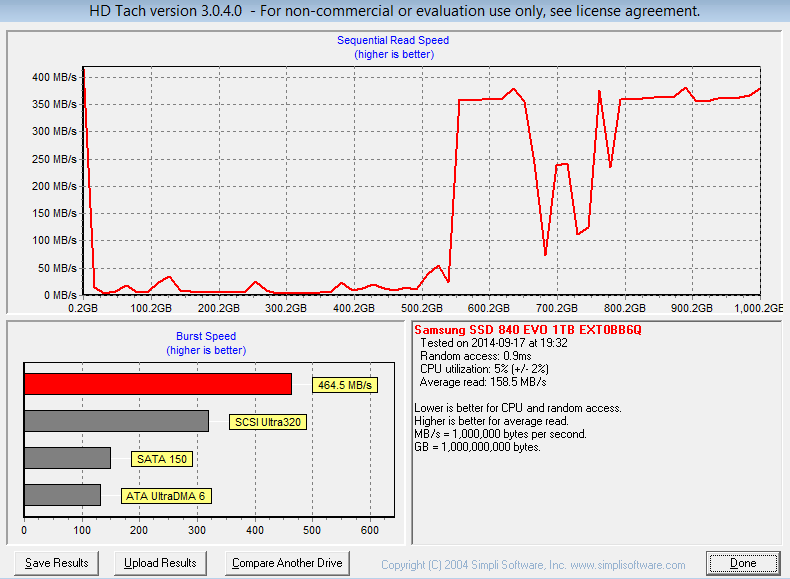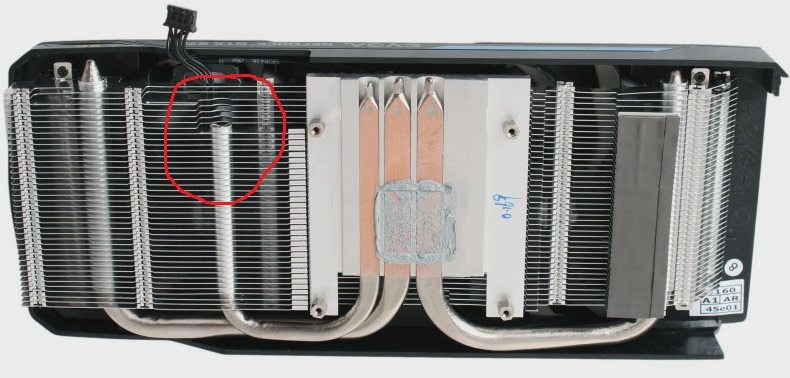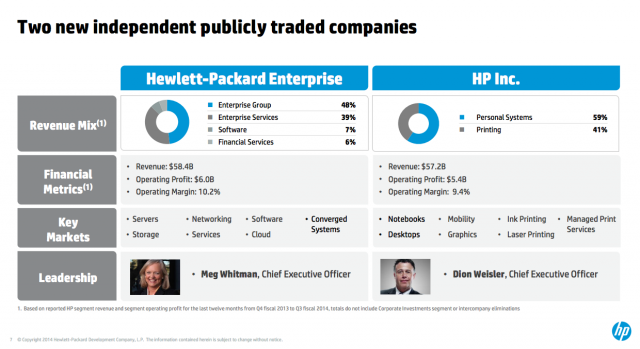Re: Software/Hardware news
Posted: 20 Sep 2014, 00:25
You Can Now Run Android Apps on Chrome for Windows, Mac and Linux
http://www.omgchrome.com/run-android-ap ... ux-archon/
http://www.omgchrome.com/run-android-ap ... ux-archon/
Jocuri vechi și noi · Forumul comunității LEVEL
https://forum.candaparerevista.ro/
For those who are not aware of the issue, there is a bug in the 840 EVO that causes the read performance of old blocks of data to drop dramatically like the HD Tach graph below illustrates. The odd part is that the bug only seems to affect LBAs that have old data (>1 month) associated with them because freshly written data will read at full speed, which also explains why the issue was not discovered until now.

 <- clicky
<- clickyhai sa vb prostiiola small dickie » 25 Sep 2014, 06:43 wrote:zmeul de pe forumul level a identificat cu ochiul liber pe o poza de pe internet o problema si o solutie ce le-au scapat specialistilor de la unul din cei mai mari producatori de placi video.i'm honoured
daca eu si alte zeci/sute de indivizi au vazut problema iar inginerii alora nu .. ASUS au fost huliti pt exact aceeasi problema pe placile AMDola small dickie » 25 Sep 2014, 11:51 wrote:Doar mi s-a parut amuzanta abordarea ta si modul cum ai ales sa povestesti problema. Gen: "bai pulicilor de la EVGA, nu v-a trecut ba prostanilor prin cap sa mutati nu stiu ce la cativa mm mai incolo? ce amatori". In rest, nu te iau peste picior, posteaza in continuare, ma intereseaza unele.
Even after the official response above, someone has brought it to our attention that the 3rd heatpipe isn’t even sealed off therefore having no functioning operation whatsoever as shown below

Caudill says that by publishing their code, he and Wilson are hoping to start that security process. But even they hesitate to release every possible attack against USB devices. They’re working on another exploit that would invisibly inject malware into files as they are copied from a USB device to a computer. By hiding another USB-infecting function in that malware, Caudill says it would be possible to quickly spread the malicious code from any USB stick that’s connected to a PC and back to any new USB plugged into the infected computer. That two-way infection trick could potentially enable a USB-carried malware epidemic. Caudill considers that attack so dangerous that even he and Wilson are still debating whether to release it.

HP plans to break into two by the end of October 2015. One of the new, separate companies will be Hewlett-Packard Enterprise, focusing on "servers, storage, networking, converged systems, services and software as well as its OpenStack Helion cloud platform," HP said. HP CEO Meg Whitman will be CEO of Hewlett-Packard Enterprise.
HP's personal systems and printing businesses will become HP Inc. and have "a strong roadmap into the most exciting new technologies like 3D printing and new computing experiences," HP said. Dion Weisler, executive VP of the printing and personal systems division, will be HP Inc. CEO. Whitman will chair the HP Inc. board.
Before we get into the results of our testing, we should spend a moment on the problem itself. Here's how Samsung describes the issue:
SSDs usually calibrate changes in the statuses of cells over time via the flash management software algorithm. Due to the error in the software algorithm, the 840 EVO performed read-retry processes aggressively, resulting in a drop in overall read performance. This only occurs if the data was kept in its initial cell without changing, and there are no symptoms of reduced read performance if the data was subsequently migrated from those cells or overwritten.
Am găsit asta pe darknet:zme-ul » Fri Oct 03, 2014 6:03 pm wrote:The Unpatchable Malware That Infects USBs Is Now on the LooseCaudill says that by publishing their code, he and Wilson are hoping to start that security process. But even they hesitate to release every possible attack against USB devices. They’re working on another exploit that would invisibly inject malware into files as they are copied from a USB device to a computer. By hiding another USB-infecting function in that malware, Caudill says it would be possible to quickly spread the malicious code from any USB stick that’s connected to a PC and back to any new USB plugged into the infected computer. That two-way infection trick could potentially enable a USB-carried malware epidemic. Caudill considers that attack so dangerous that even he and Wilson are still debating whether to release it.
